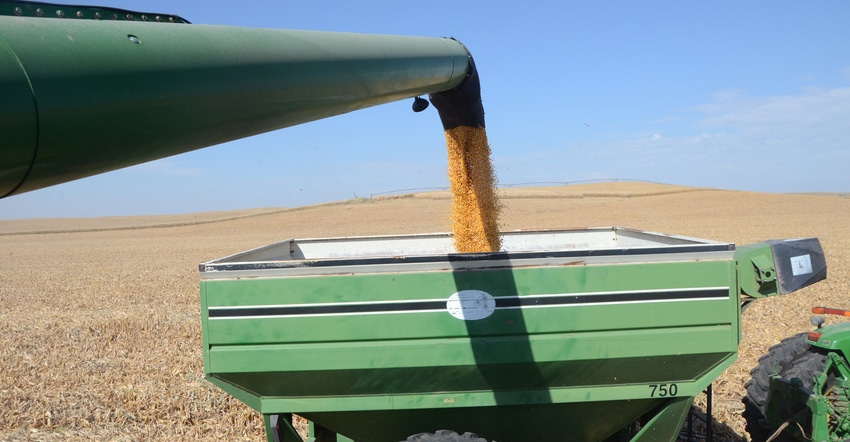
With everything going on in the world right now, it might be hard to imagine what life might look like in a normal year — or even imagine what it might look like next year. However, with the current state of the ag economy, it might be a good time to assess what you want your farming operation to look like next year — and how you're going to get there.
That said, recent conversations with ag economists and economics professors have shed some light on ways to test the ability of a farming operation to survive unseen financially devastating events, such as the COVID-19 pandemic and its direct and indirect economic impact on agriculture.
This "stress testing" might involve using numbers for certain economic scenarios, probabilities and decisions to get an idea of the outcome and impact on the farming operation.
Cory Walters, associate professor in the University of Nebraska-Lincoln's Department of Agricultural Economics, recently discussed stress testing on Nebraska Farmer's Down In The Weeds podcast.
Walters emphasized that just because a financially devastating event has a low probability, or hasn't been experienced on the farm before, doesn't mean it won't happen. In other words, absence of evidence does not equal evidence of absence.
This can be challenging, since most of us don't like thinking about extreme events in the first place. But, as a business, Walters points out, it's important to consider these things before they happen. And it's important to remember that preparing for something doesn't imply forecasting it.
"We're not predicting anything. You can't predict anything in the world of survival," Walters says.
It goes without saying that in agriculture, there are a number of things outside your control — commodity prices are one such factor. However, stress testing allows you to see how the farming operation can withstand lower prices.
While it may not be possible to predict prices with absolute certainty, it is possible to determine the probability of prices reaching a certain level — for example, using the current December corn futures price and implied volatility generated from market data to determine the probability of where corn futures can end up on Dec. 1.
One strategy might involve hedging or forward contracting to lock in a profit, even if you expect prices to go higher. "Seller's remorse" is a real thing, but when the goal is farm survival, farmers shouldn't feel remorse when a profit has been locked in.
While it can be stressful and unhealthy to focus on things you can't control, there are things you can control. For example, Walters emphasizes things such as equipment costs and production costs. While it may be easy to see these costs as necessary expenses, that's not always the case, he says. And controlling these variables can lead to farm survival in the wake of unseen events such as the COVID-19 pandemic.
"You have to focus on those things and not just say, 'Well that's just the way it is,'" Walters says. "I've seen plenty of evidence that says production costs for some producers are quite low, much lower than where revenue is at today, so they're going to still make money. I've seen others where production costs are higher. I don't know what's driving that, but that is something you can control."
Of course, every farm is different, and what works for one farm may not work for another — it all depends on the individual farming operation, and it's up to the farmer to determine what works best for their farm.
Whatever the strategy, it doesn't hurt to be prepared for financially devastating events ahead of time. The current state of the ag economy won't last forever. Things will improve, but it's also true that financially devastating events will happen again in the future. That's why it's important to be prepared when they do — however unpleasant it may be to think about.
Read more about:
Covid 19About the Author(s)
You May Also Like






